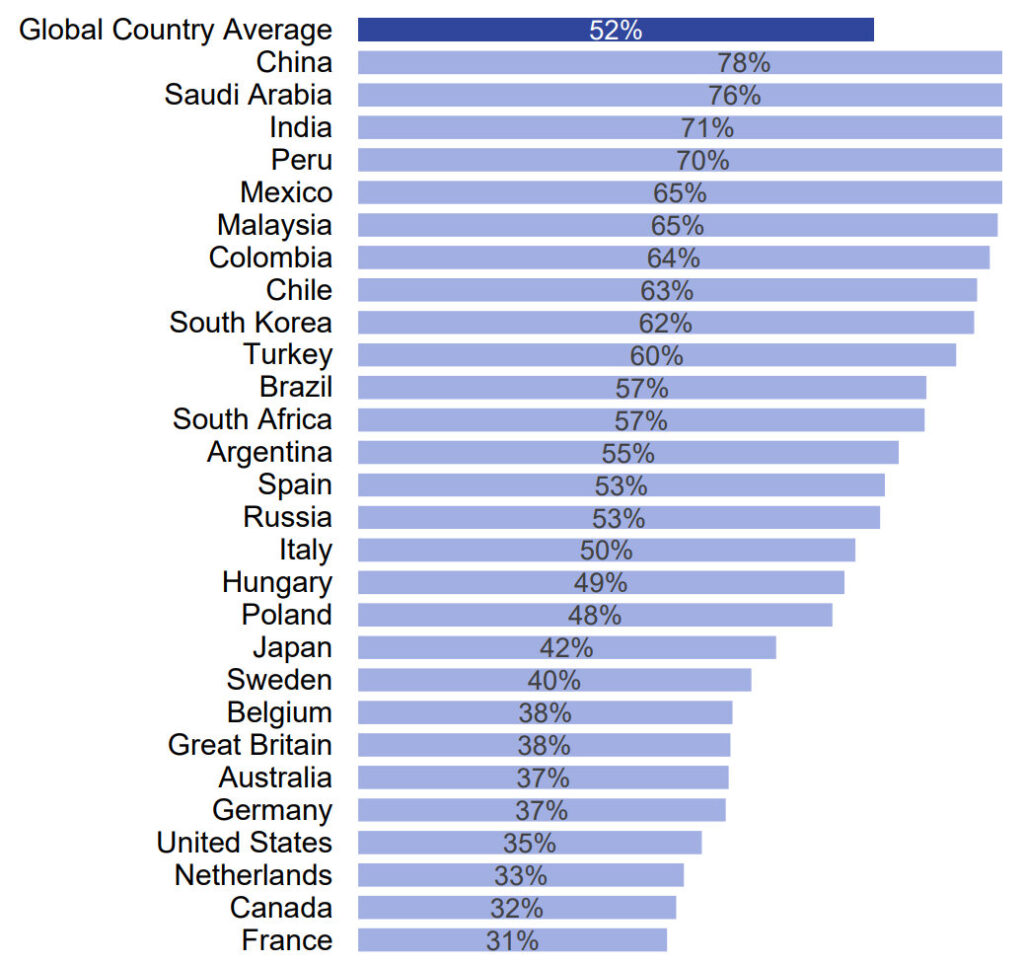We have been not too long ago handed an open letter the place it was pleaded that we pause big AI experiments and within the meantime “ask ourselves…Ought to we develop nonhuman minds that may ultimately outnumber, outsmart, out of date and change us? Ought to we danger lack of management of our civilization?”
Outstanding names in laptop science, akin to Elon Musk and Steve Wozniak are signatories to this letter and in consequence it made headlines everywhere in the world with the standard hype and pomp surrounding something even remotely pertaining to AI.
Time journal, as an illustration, posted this in an article solely final month:
I kept away from signing as a result of I feel the letter is understating the seriousness of the state of affairs and asking for too little to resolve it… Many researchers steeped in these points, together with myself, anticipate that the most probably consequence… is that actually everybody on Earth will die.
Quote taken from this text.
We’re used to end-of-the-world speak like this, although, aren’t we? Prof Stephen Hawking in 2014 warned that “The event of full synthetic intelligence may spell the top of the human race.” And naturally we’ve Elon Musk who’s on the forefront of this sort of banter. For instance in 2020 he mentioned: “We’re headed towards a state of affairs the place AI is vastly smarter than people and I feel that time-frame is lower than 5 years from now.”
The speak on the streets amongst on a regular basis folks appears to be comparable, too. How can it not be when the media is bombarding us with doom and gloom (as a result of sensationalism is what sells papers, as I’ve mentioned in earlier posts of mine) and authority figures like these talked about above are speaking like this.
Is society afraid of AI? I appear to be noticing this an increasing number of. Different very outstanding figures try to speak frequent sense to carry down the hype and have even publicly opposed the open letter from final month. Titans of AI like Yann LeCunn and Andrew Ng (who’re 1,000 instances larger AI consultants than Elon Musk, btw) have mentioned that they “disagree with [the letter’s] premise” and a 6-month pause “would truly trigger important hurt“. Voices like this are usually not being heard, nevertheless.
However then the opposite day whereas I used to be studying via the annual AI Index Report launched by Stanford Institute for Human-Centered Synthetic Intelligence (HAI) (over 300 pages of research capturing traits in AI) this specific graph stood out for me:

What struck me was how Asia and South America (Japan being the only real exception) need to embrace AI and are typically followers of it. Europe and the US, then again, not a lot.
This received me considering: is that this concern of AI solely dominant in Europe and the US and in that case, is it a cultural factor?
Now, off the bat, the explanations for Asia and South America embracing AI may very well be quite a few and never essentially cultural. For instance, these international locations are decrease revenue international locations and maybe they see AI as being a fast answer to a greater life within the current. Honest sufficient.
Additionally, the explanations behind Europe and the US eschewing AI may very well be purely financial and short-term as nicely: they concern the approaching disruption in jobs that may comply with upon developments in expertise fairly than immediately fearing an AI apocalypse.
Regardless of all this and understanding that correlation doesn’t essentially entail causation, maybe there’s one thing cultural to all of this, in any case. The numerous signatories to the current open letter appear to have come purely from the US and Europe.
I had two educating stints in India final yr and one within the Philippines. One of many subjects I lectured was AI and as a part of a dialogue train I received my college students to debate with me on this very matter, i.e. whether or not we’re succesful in any respect within the close to or distant future of making one thing that can outsmart after which annihilate us. The impression that I received was that the scholars in these international locations had a a lot deeper appreciation for the individuality of human beings as in comparison with machines. There was one thing intrinsically completely different in the way in which that they referred to AI as in comparison with the individuals in my dwelling nation of Australia and second dwelling of Europe with whom I speak to every day.
In fact, these are simply my personal observations and a basic “feeling” that I received whereas working in these two international locations. The inhabitants dimension of the experiment could be one thing like 600 and even then it was not attainable for me to get everyone’s opinion on the matter not to mention request all my lessons to finish an in depth survey.
Regardless, I feel I’m elevating an attention-grabbing query.
May the West’s post-Descartes and post-Enlightenment intervals have created in us a extra intrinsic feeling that rationality and consciousness are issues which might be simply manipulated and simulated after which in the end enhanced? Previous to the Enlightenment, man was complete (that’s, consciousness was not a definite ingredient of his existence) and any type of imitation of his rationality would have been thought to be all the time being inferior no matter how wonderful the imitation may have been.
The Turing check wouldn’t have been a factor again then. Who cares if any individual is fooled by a machine for 15 minutes? Finally it’s nonetheless a machine and one thing inherently made from simply lifeless matter that would by no means transcend into the realm of understanding, particularly that of summary actuality. It may mimic such understanding however by no means possess it. Large distinction.
No one would have been afraid of AI again then.
Then got here alongside Descartes and the Enlightenment interval. Some improbable work was finished throughout this time, don’t get me incorrect, however we as people have been remodeled into lifeless, deterministic automata as nicely. So, it’s no marvel we imagine that AI can supersede us and we’re afraid of it.
The East didn’t endure such a interval. They share a special historical past with completely different philosophies and completely different perceptions of life and folks typically. I’m no skilled on Jap Philosophies (my Grasp’s in Philosophy was finished purely in Western Thought) however I’d love for any individual to put in writing a e-book on this matter: How the East perceives AI and machines.
After which maybe we may study one thing from them to present again the dignity to mankind that it deserves and possesses. As a result of we aren’t simply deterministic machines and the top of civilisation just isn’t looming over us.
Parting Phrases
I’m not denying right here that AI just isn’t going to enhance or be disruptive. It’s a given that it’ll. And if a pause is required it’s for one cause: to make sure that the disruption isn’t too overwhelming for us. In equity, the Open Letter of final month does state one thing akin to this, i.e. “Highly effective AI programs needs to be developed solely as soon as we’re assured that their results will probably be constructive and their dangers will probably be manageable.” The overall vibe of the letter, nonetheless, is certainly one of doom, gloom, and oblivion, and that is what I’ve wished to handle in my article.
Secondly, I realise that I’ve used the East/West divide somewhat bit erroneously as a result of South America is often counted as a Western area. Nonetheless, I feel it’s secure to say that Europe and the US are historically a lot nearer culturally to one another than they’re respectively with South America. The US has a powerful Latino group however the Europe-US cultural connection is a stronger one. To be extra exact I wish to have entitled my article “Europe and the USA Concern Synthetic Intelligence, Asia and South America Do Not” however that’s only a clunky title for somewhat submit on my humble weblog.
Lastly, I’ll emphasise once more that my evaluation just isn’t watertight. Maybe, actually, I’m clutching at straws right here. Nonetheless, possibly there simply is one thing to my query that the way in which the “East” perceives AI is completely different and that we needs to be listening to their facet of the story extra on this debate on the way forward for AI analysis than we at the moment are.
—
To learn when new content material like that is posted, subscribe to the mailing record:



